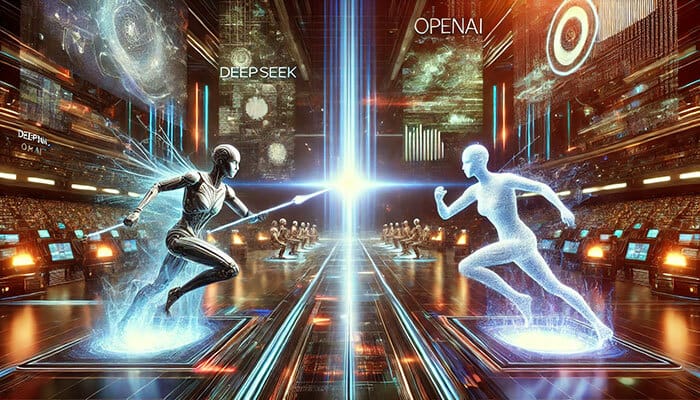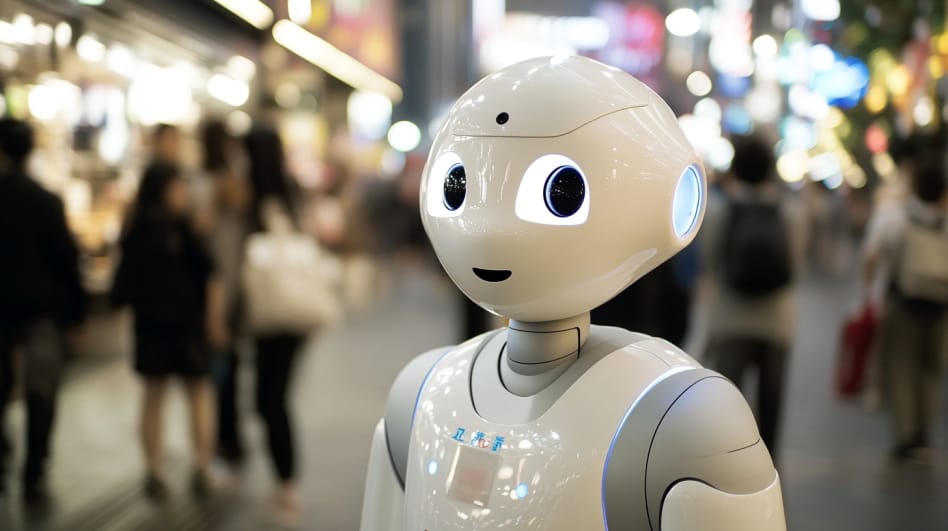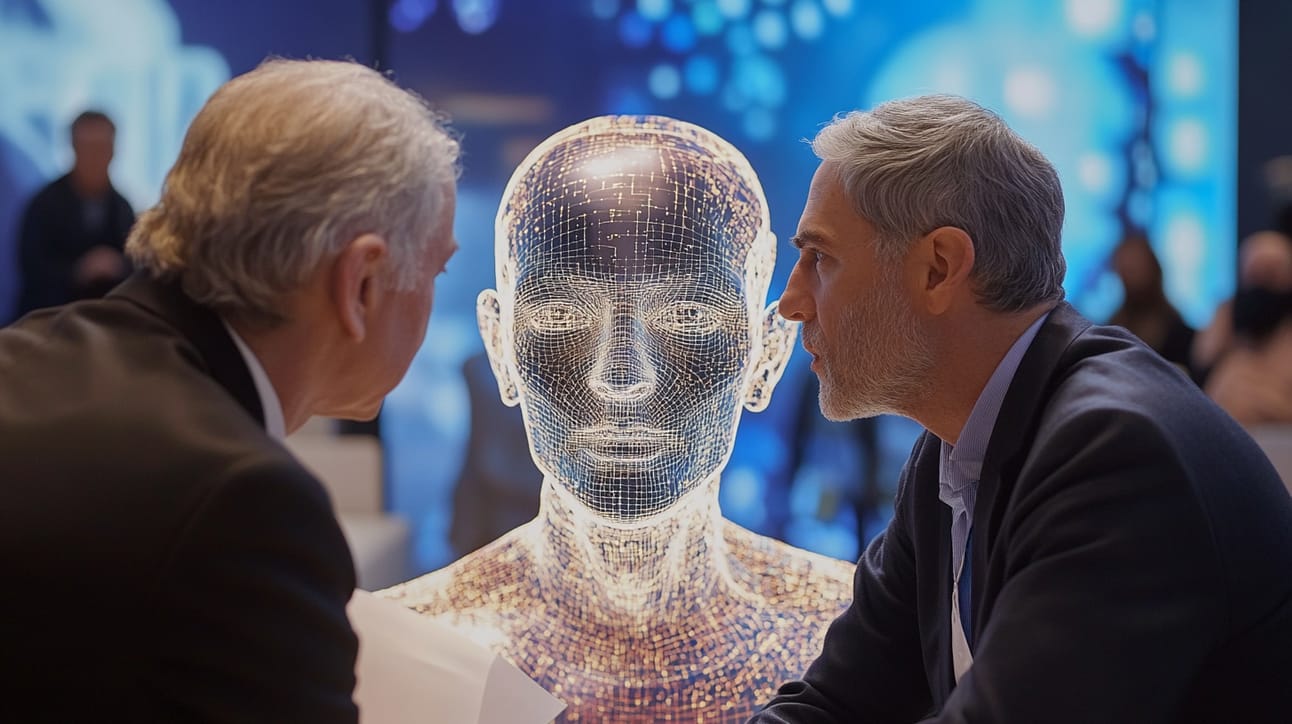- AI Trailblazers
- Posts
- Navigating AI: AI coding troubles, doubling your lifespan and a roundup from Davos
Navigating AI: AI coding troubles, doubling your lifespan and a roundup from Davos

Welcome to this week’s AI Trailblazers Newsletter! Thank you for choosing us as your trusted source for the latest AI business news. AI Trailblazers is partnering with ADWEEK to launch the AI Trailblazers Power 100, honoring leaders shaping the future of marketing with AI. Nominate top talent by Jan. 31 at 3 p.m. ET and celebrate the individuals at brands, agencies and in the ad-tech and mar-tech ecosystem that deserve the attention.
In this edition, we look at the early mishaps of Devin, the coder that may need to be placed on a PIP, the incredible advances in medicine expected over the next 5-10 years that may have you living well past 100 and the rosy expectations CEOs at Davos have for AIs integration into their organizations. Enjoy!
DeepSeek R1: China’s Open-Source AI Breakthrough Amid U.S. Sanctions

DeepSeek R1, an open-source AI reasoning model from the Chinese startup DeepSeek, is gaining significant attention for its ability to rival OpenAI’s ChatGPT o1 in reasoning tasks while operating at a dramatically lower cost. Despite U.S. export controls limiting access to advanced AI chips, the MIT Technology Review discusses how DeepSeek has successfully developed an efficient and high-performing AI model by optimizing its training process and embracing resourceful innovation.
Breakthrough in AI Efficiency
DeepSeek R1 has been praised for its strong reasoning abilities, particularly in mathematics and coding, where it uses a “chain of thought” approach similar to ChatGPT. This method allows the model to process problems step by step, improving its accuracy and logical coherence. Researchers also highlight R1’s engineering simplicity—by prioritizing correct answers over exhaustive step-by-step reasoning, it significantly reduces computational overhead. Additionally, DeepSeek has released six smaller versions of R1, one of which reportedly outperforms OpenAI’s o1-mini model, offering flexible AI solutions that can even run locally on laptops.Overcoming Hardware Constraints
The U.S. government’s restrictions on the export of high-end AI chips to China were intended to slow the country’s AI development, but DeepSeek’s success suggests the opposite effect. To circumvent these challenges, DeepSeek reworked its AI training process to operate efficiently on Nvidia GPUs designed for the Chinese market, which have capped performance. Founder Liang Wenfeng, anticipating future restrictions, stockpiled Nvidia A100 chips—now banned for export to China—giving DeepSeek access to an estimated 10,000 to 50,000 units for model development. This combination of foresight, resource management, and algorithmic efficiency allowed DeepSeek to develop a competitive model despite limited hardware resources.China’s AI Growth & Open-Source Shift
DeepSeek’s emergence aligns with a broader trend of Chinese AI firms prioritizing open-source development to accelerate innovation. Companies like Alibaba Cloud and 01.AI have released numerous open-source models, catering to diverse applications such as coding, mathematics, and multilingual processing. A recent report from the China Academy of Information and Communications Technology states that 36% of the world’s large language models now originate in China, positioning the country as the second-largest contributor after the U.S. Additionally, the AI industry is seeing increasing collaboration, with major players such as Alibaba Cloud and 01.AI merging research efforts to strengthen China’s AI capabilities in response to geopolitical constraints.
AI Trailblazer Takeaways: DeepSeek R1 exemplifies how Chinese AI startups are adapting to global restrictions by innovating for efficiency and cost-effectiveness. The shift toward open-source AI, coupled with strategic resource management, has enabled China to remain highly competitive in AI development. However, some have raised concerns about whether DeepSeek and other companies are training their models ethically—avoiding the use of copyrighted data or leveraging proprietary models like OpenAI’s. As the industry evolves, collaborations and efficiency-driven advancements will shape the next phase of AI research, ensuring continued competition on the global stage.
Code Breaker or Deal Breaker? Devin’s Glitchy Performance Exposed

Devin, touted as the "first AI software engineer" by its creator Cognition AI, has faced significant criticism according to The Register for its poor performance in real-world testing. Despite ambitious claims about its ability to autonomously handle coding tasks, deploy applications, and assist developers, evaluations reveal a tool that struggles to deliver on its promises. Researchers and reviewers have raised concerns about Devin's reliability, efficiency, and even security, casting doubt on its utility as a groundbreaking AI innovation.
Introduction and Claims of Devin
Devin, an AI software engineer developed by Cognition AI, was launched in March 2024 and made available to the public in December 2024 at $500 per month. It claims to autonomously write, test, and deploy code, perform PR reviews, support code migrations, and handle personal assistant tasks. The tool uses Slack as its interface and integrates with APIs for external services, functioning as a "compound AI system" powered by models like OpenAI's GPT-4o.Initial Hype and Demonstrations
Cognition AI promoted Devin as capable of completing coding tasks autonomously, even showcasing its functionality in a promotional video. However, software developer Carl Brown debunked claims in the video on YouTube, pointing out inconsistencies. Another YouTube reviewer raised concerns over the inclusion of critical security issues in Devin's outputs.Performance Issues in Testing
Testing by three researchers from Answer.AI revealed significant flaws, with Devin completing only 3 of 20 assigned tasks successfully. The tool managed to pull data from Notion to Google Sheets and create a planetary tracker but failed on most other tasks. Researchers highlighted Devin's tendency to persist with impossible solutions, leading to inefficiency and unusable outputs.Concerns Over Reliability and Usability
While Devin impressed with its polished user experience when it worked, researchers found its overall performance unreliable and unpredictable. Tasks that initially seemed simple often took days or failed entirely, with Devin hallucinating features or pursuing dead ends. The researchers concluded that Devin’s autonomous nature, initially promising, became a major liability due to its inability to recognize fundamental blockers.
AI Trailblazer Takeaways: While you can argue that the technology is still in its infancy, one can also argue that it may be too great an expectation for a computer to think, act and work like a human.
AI’s High Stakes: Progress, Politics, and a Race for Global Leadership

AI advancements are poised to transform humanity, with Anthropic CEO Dario Amodei predicting breakthroughs in biology could double human lifespans within a decade according to PYMNTs. Speaking at the World Economic Forum in Davos, Amodei highlighted the potential of AI to surpass human capabilities across various fields. However, alongside its promise, AI faces significant implementation challenges and raises concerns about its political and global implications. Industry leaders emphasized the need for responsible innovation and maintaining leadership in the rapidly evolving AI landscape.
AI and the Potential for Doubling Human Lifespans
Anthropic CEO Dario Amodei envisions AI advancements in biology leading to a doubling of human lifespans within five to ten years. He believes AI’s ability to accelerate decades of biological research into a few years makes this goal feasible. Amodei’s optimism stems from AI’s progress in solving complex tasks, which he sees as surpassing human capabilities in various fields.Workplace Transformations with AI Agents
Amodei described Anthropic’s “virtual collaborator,” an AI agent designed to perform higher-level workplace tasks, requiring minimal oversight from managers. Salesforce CEO Marc Benioff noted the rise of AI agents could make current CEOs the last to manage all-human teams. Google is also advancing AI, including its quantum computing technology, which significantly outpaces current supercomputers in speed and problem-solving capabilities.Challenges in AI Implementation
Despite advancements, physical world complexities and bureaucratic red tape hinder AI’s potential, as seen in self-driving cars and drug development. Pfizer CEO Albert Bourla emphasized that while AI accelerates drug discovery, regulatory hurdles remain a bottleneck. Similarly, Uber CEO Dara Khosrowshahi highlighted the need to overcome public trust issues and real-world challenges for autonomous vehicles to gain widespread adoption.AI’s Global and Political Implications
Amodei expressed concerns about AI’s impact on political systems, questioning whether it will stabilize autocracies or destabilize democracies. He warned of potential misuse by authoritarian regimes, envisioning scenarios akin to dystopian fiction. Google CIO Ruth Porat stressed the need for the West to lead AI development through pro-innovation policies to prevent falling behind in the global AI race.
AI Trailblazer Takeaways: The impact of AI is leading to many pro and con conversations. While improvements to healthcare are a definite benefit to humanity, the destabilization of democracies should definitely give Americans pause. While it’s all just theory today, we would all do well to stay on top of these innovations and continually support their ethical use.
Global Leaders Embrace AI’s Potential—and Its Challenges

At the World Economic Forum in Davos, AI took center stage as global business leaders explored its transformative potential across industries. From reshaping infrastructure and revolutionizing medical science to driving workforce evolution and global competition, CNBC delves into how AI’s influence was a recurring theme in discussions. CEOs shared bold predictions about the technology’s rapid advancements, highlighting both its opportunities and challenges. Their insights painted a picture of a future where AI redefines business, society, and innovation on a global scale.
AI’s Transformative Potential in Business and Society
Top CEOs at Davos underscored the transformative power of AI across industries. Mubadala CEO Khaldoon Al Mubarak highlighted AI’s role in reshaping infrastructure, from energy to data centers, while Larry Summers likened AI’s emergence to the internet revolution, calling it a “moment of epic challenge” for governments worldwide. CEOs emphasized AI’s capacity to revolutionize fields like medical science, financial services, and beyond.
AI Driving Workforce Evolution
The integration of AI in workplaces is seen as both a challenge and a boon. Edelman CEO Richard Edelman stressed the importance of reskilling employees to ensure AI’s acceptance and productivity gains. Meanwhile, Randstad CEO Sander van’t Noordende warned of job disruptions, particularly in administrative and design roles, but acknowledged AI’s role in creating new opportunities in technology, security, and healthcare.
Global Competition and Industry Adoption of AI
Mistral CEO Arthur Mensch described AI as an industrial revolution, urging industries to adopt it swiftly to remain competitive. He noted a shift from language models to integrated systems capable of acting autonomously. Mensch emphasized the need for sovereign AI solutions, reflecting a competitive race among governments to lead in AI development.
Advances and Risks in AI Technology
Leaders discussed the rapid advancements in AI, including Anthropic CEO Dario Amodei’s vision of “a country of geniuses in a data center,” predicting AI tools superior to human capabilities within a few years. Despite the optimism, concerns about potential risks, including economic disruption and ethical implications, remained prominent topics.
AI Trailblazer Takeaways: Global CEOs at Davos were most certainly bullish about AI’s impact on the world and sound to be preparing for the future. The question is whether they are doing enough within their organizations to drive that transformation in ways that drive growth while still supporting the employees.
Quote of the Week
“…success is not indicative of Chinese AI surpassing American AI but rather the advantage of open-source models over proprietary ones.”
- Yann LeCun, Chief AI Scientist at Meta
Magnificent 7 Links
ChatGPT's new feature, Nvidia's healthcare AI, and Synthesia's millions: This week's AI launches (Quartz)
Other Links of the Week
AI-powered cancer vaccines soon? Oracle's Larry Ellison reveals big plans (business-standard.com)
4 Takeaways from the J.P. Morgan Healthcare Conference (American Hospital Association)
It took these scientists just a month to discover a substance that could treat liver cancer – thanks to this technology (CNN Business)
First AI software engineer' is bad at its job (theregister.com)
Report uncovers disturbing secret tech companies are keeping about artificial intelligence: 'The trend … is worrying' (Yahoo News)
Trump signs executive order on developing artificial intelligence 'free from ideological bias' (AP News)
Partner with AI Trailblazers
Our community of business leaders is growing fast and we are planning more forums. To discuss partnership opportunities that connect our partners with AI decision makers including at our summits and this newsletter, email us.
What is AI Trailblazers?
AI Trailblazers is a vibrant platform dedicated to uniting corporate marketers, technologists, entrepreneurs, and venture capitalists at the forefront of artificial intelligence (AI). Our mission is to fuel growth, innovation, and career development among our members, who all want to be at the forefront of incorporating artificial intelligence into their businesses and their lives for strategic advantage. More information here.